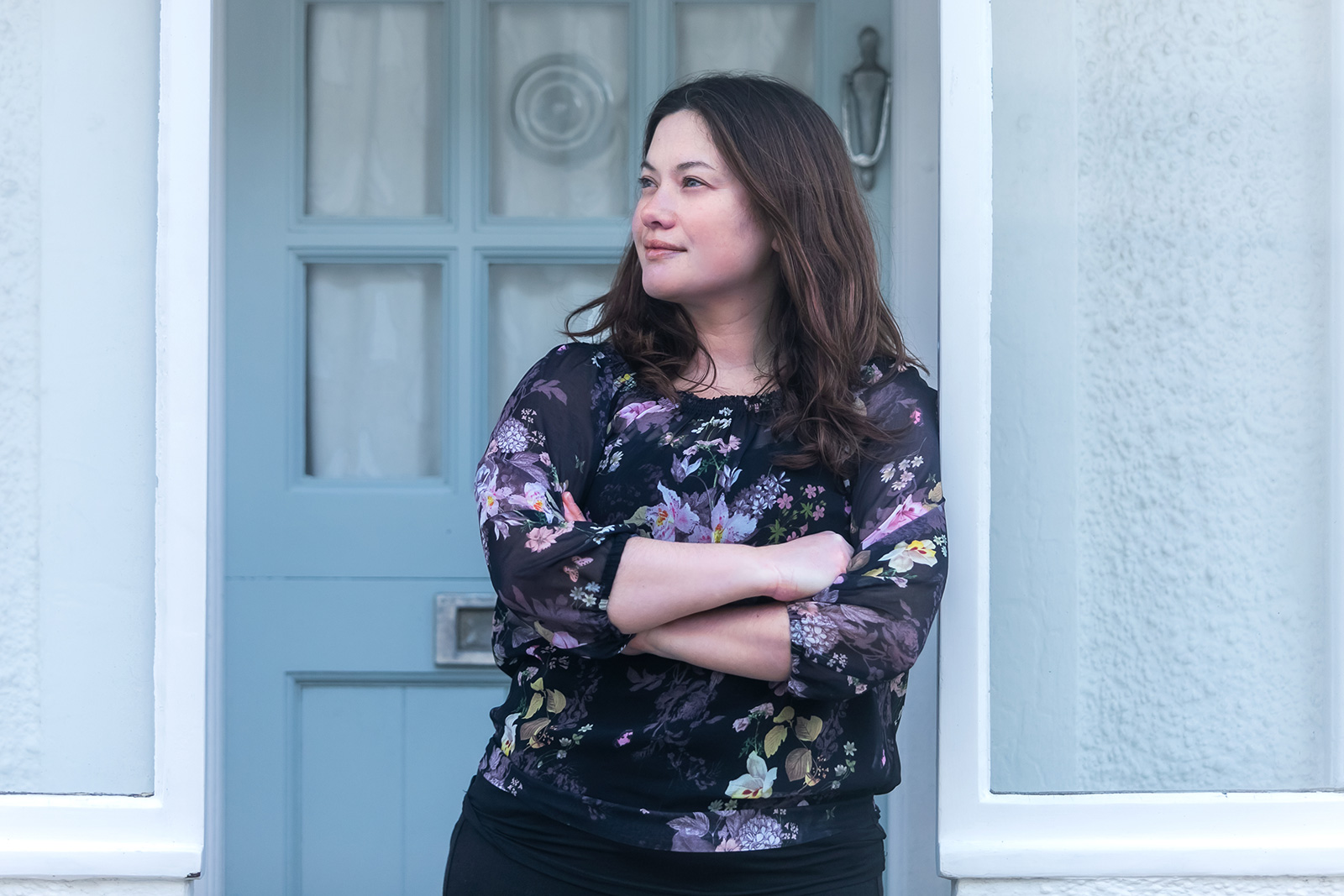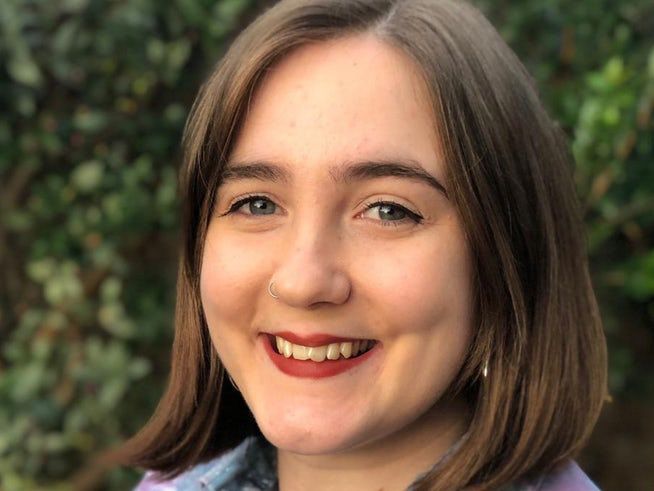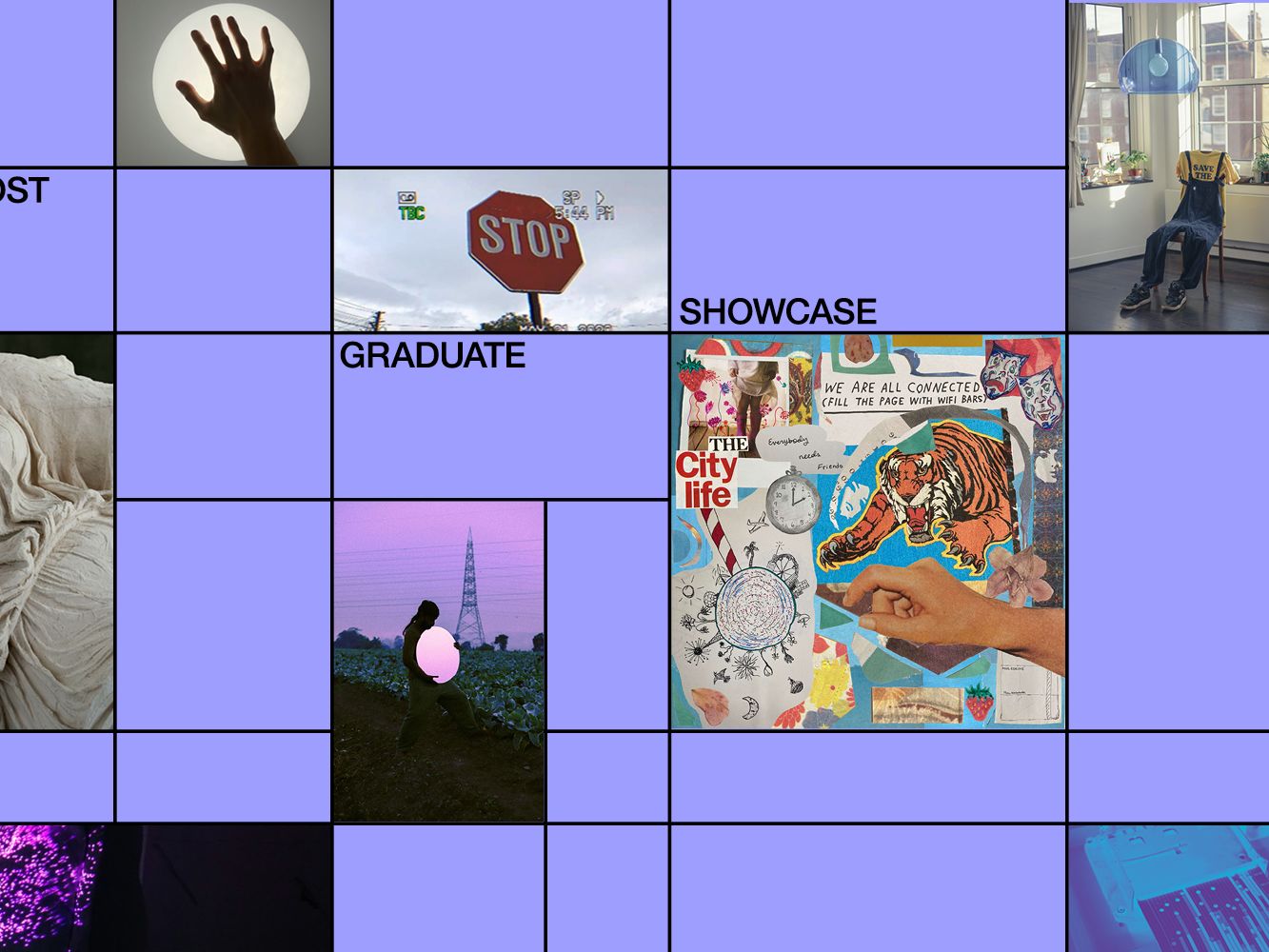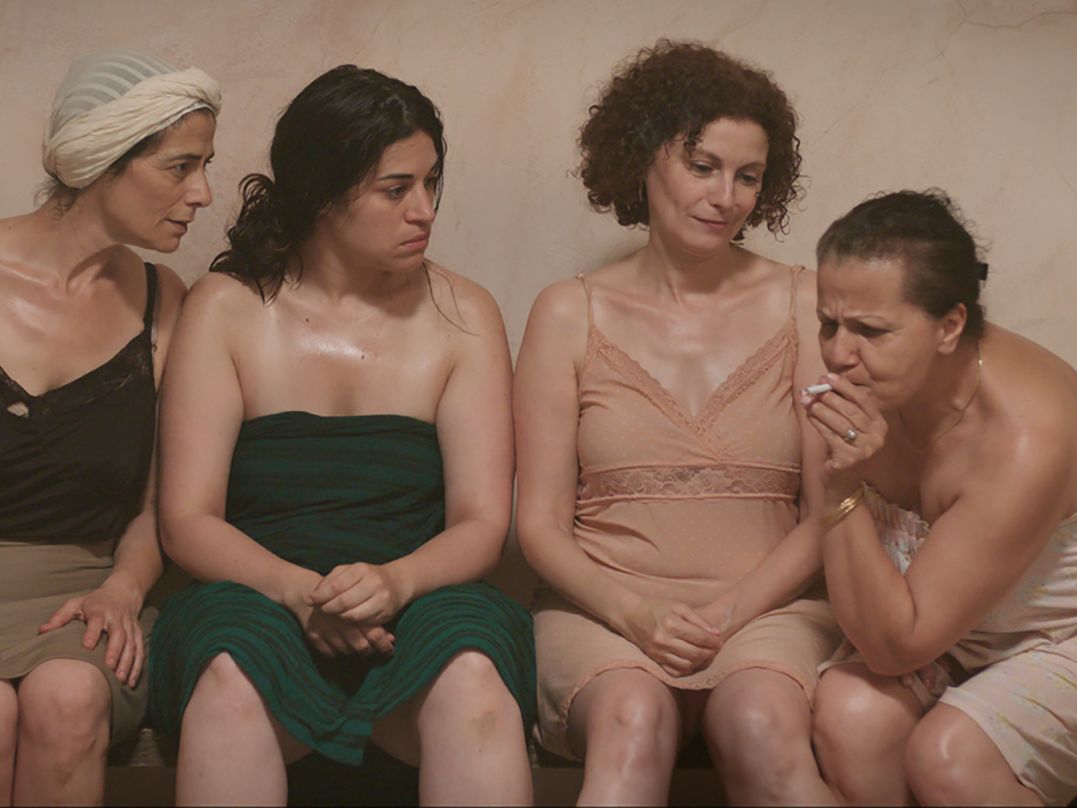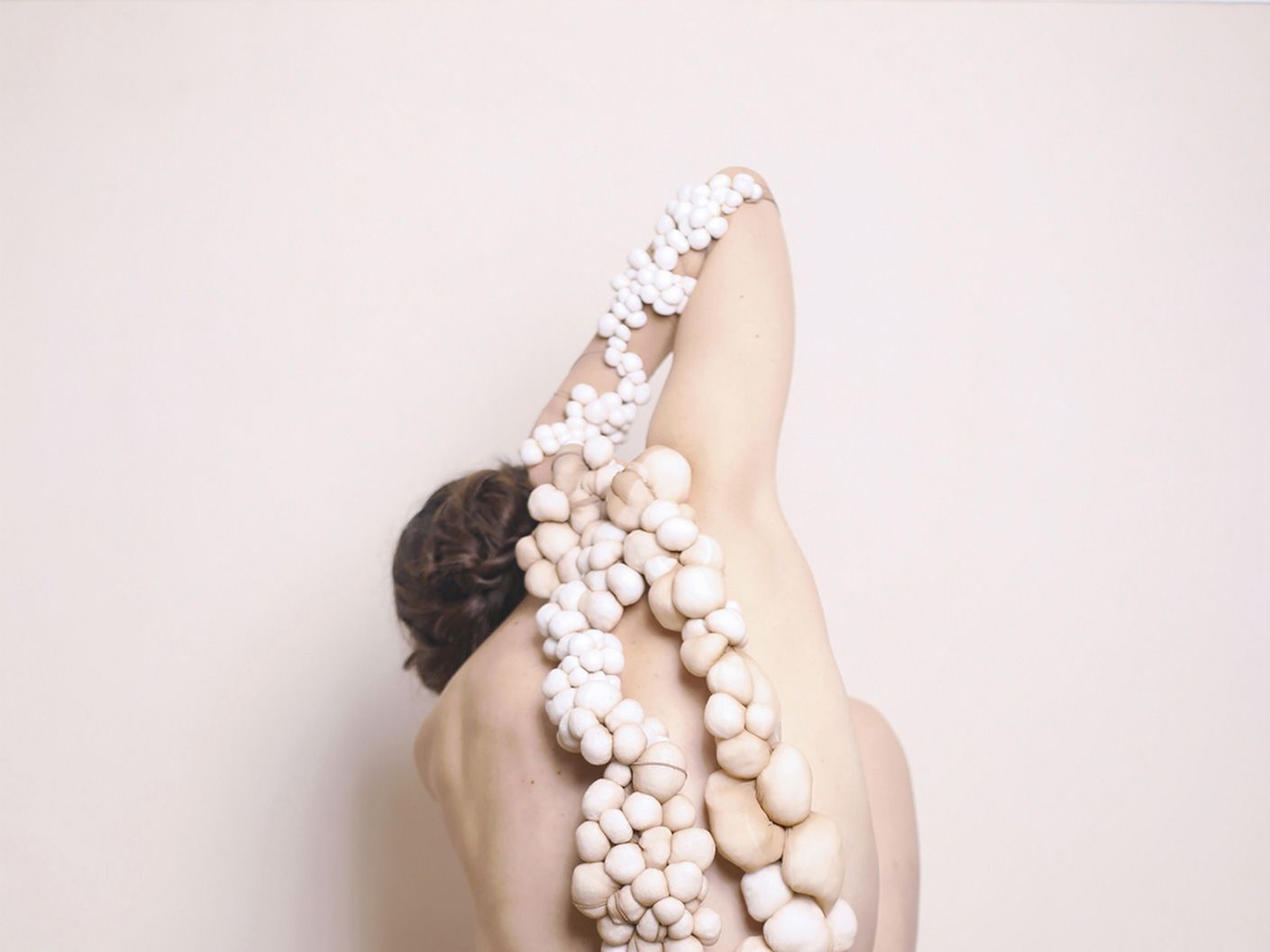As one of the UK's leading film and TV scripting courses, MA Screenwriting at London College of Communication (LCC) introduces students to the foundations of contemporary industry practice through a range of practical and theoretical contexts.
With opportunities to develop feature film, television and radio narratives, students are supported to hone their own unique voice while developing key scriptwriting and research skills. Throughout the course, they build their understanding of narratives, structure, characters and worlds, developing their own strong, industry-relevant portfolios while opening doors into script reading, script editing and script development work.
Graduates from MA Screenwriting have received significant critical acclaim, with many going on to forge successful careers across areas ranging from television, film and radio to literature, theatre and gaming. Some have even received recognition from major awards such as BAFTA and the International Emmys.
Lara Barbier
Screenwriter and copywriter Lara Barbier graduated from MA Screenwriting in 2016. Since then, she has gained professional representation with The Agency; had work optioned by organisations including Sprout Pictures (Keeper of the Pleas, 2016) and Blonde Mamba (The Book of Watchers, 2019); and celebrated success ranging from showcasing plays at Theatre503 RWR (Soundtrack Your Life and Tampon Terror, 2017) and being named a Top 10 Finalist in the Final Draft Big Break contest (The Pirate Wife, 2019).
More recently, Lara was selected for the LCC Graduate Residency, where she developed an immersive VR experience, Fractus, with Simon Ashbery. She was one of 8 writers chosen for the 2020 CanneSeries Residency, a programme which supports promising auteurs from all over the world to explore the art of series writing, and has also been selected to join Cornish Voices, a regional writing development group hosted by BBC Writersroom.
We chatted to Lara about some of the key highlights of her creative journey so far, the power of mentorship, and her top tips for aspiring screenwriters.

2020
"LCC literally launched my career"
How did your passion for screenwriting first develop?
This story could honestly be a blog post in itself, so here’s a very simplified answer: I think the passion was always there, right from a young age. It just took me 26 years to get over societal expectations and finally pursue my dreams.
Have the last 7 years been some of the most stressful of my life and involved a lot of hard work? Yes. But do I regret it? Truthfully, I’ve sometimes questioned my sanity, but also, no – I have zero regrets.
Also, full disclosure – my work has been completed around part-time and/or freelance work across digital communications, marketing and copywriting. It’s important to approach the sector with a solid plan on how you’ll still pay rent while trying to make it in this crazy industry.
What did you most enjoy about your time at LCC?
My undergraduate degree was at a very traditional university, and quite honestly, I never felt like it was the right fit or that I had really found my people. I remember about halfway through the first term at LCC, walking in from lunch with my new course-mates and just thinking: ‘Oh, THIS is what university is meant to feel like.’ I felt totally at home at the College, and I realised that I probably should have gone to a more creative place for my undergraduate studies too. I guess it’s no surprise that being around other people who loved writing and screen arts just as much as I did made me feel accepted and finally understood.
I’m still close friends with many of the people on my course today, even though we’re spread out around the world and currently separated by COVID. We still regularly Zoom together, and when it’s allowed, meet up for fun and read each other’s work.
At the end of my time on MA Screenwriting, our course leader arranged for us to pitch to agents and producers. This introduced me to my now-agent, and was also how I got my first TV idea optioned. Every single development in my career since then stems back to the 2 key contacts I made at those meetings. LCC literally launched my career.

2020
"I really gained the most phenomenal group of writers as truth-tellers and cheerleaders."
How did you find out about the CanneSeries Residency, and why did you decide to apply?
LCC’s Graduate Engagement Manager, Luminita Molico, forwarded me an email with information about the Residency. One of the big things that attracted me to apply was the prospect of gaining experience in developing a TV series through a writers’ room. This approach is used extensively in the US and is slowly being explored in the UK and mainland Europe, but it’s still relatively new here. The CanneSeries Residency offered me the opportunity to learn how an international writers’ room would work, how to ‘break’ a story across a season, and how to ‘showrun’ our own TV series in mini writers’ rooms across 5 weeks.
It offered fantastic networking opportunities and access to workshops with experienced industry luminaries. I liked the idea of getting intensive feedback and mentoring from experienced script editors and fellow writers as the last time I had that kind of help was when I was doing my MA. I find that my work is always elevated and pushed to new levels when it's interrogated in this way.
What did you gain from participating in the Residency?
I gained a huge amount. First of all, the format had to change drastically due to COVID, so instead of a 5-week intensive residency, it took place online across 6 months. Whilst, at times, I did feel the loss of that in-person and intensive space to write and collaborate, being forced to adapt to an online model has given me skills I can take forward into the industry. We’re likely to be dealing with COVID for a long time yet, and even when we get a handle on it, I think a lot of people will keep to online ways of working, so it’s been important to learn skills like using digital software to edit and give notes (i.e. Google Docs, ARC Pro), how to workshop ideas though Skype and email, and how to pitch to a whole panel of people on Zoom.
Secondly, the whole process of refining and refining an idea, interrogating it, having multiple eyes challenge you, question you, and offer their own insights, was so invaluable. At times, it could feel a bit overwhelming - when you have 10 people giving notes, you can start going in circles trying to please everyone. This in itself was a valuable lesson: how to keep hold of the core of your idea while not being inflexible to new input, as well as accepting when things aren’t working.
I was also offered the chance to practice pitching my idea over and over again in different scenarios, which often highlighted where something didn’t work or feel right.
I learned a ton by reading the work of other writers. Giving feedback helps you to really look at why and how stories work, and what makes for a compelling idea and script. You can start to see people’s strengths and innate talents, which was helpful when working together - for example, if I felt one writer was very good at character development, I could listen more to their feedback on my character arc. Another may always have some really wild, left-field plot ideas, so I’d call on them if I felt stuck on a scene, or had dug myself into a narrative hole.
I gained a lot of confidence through the CanneSeries process - I certainly learned where my weaknesses were, but by the end, I could see more of my strengths too. Let me tell you, there’s nothing quite like having another writer who you know is a brilliant craftsperson turn around and say “God, I loved X in your script” - especially while knowing that if they felt something wasn’t working, I could rely on their instincts there too.
I really gained the most phenomenal group of writers as truth-tellers and cheerleaders. My fellow residents are a world-class bunch of writers – to have these people read my work, bounce ideas with, pick me up when I felt I was failing was utterly invaluable. Alongside my brilliant mentors/script editors, Alex and Elizabeth, they are the single most wonderful part of the entire experience. I hope very much to stay in touch with all of them, and once COVID is under control, I hope we can all meet in person and raise a glass to each other.

2021
"A good script editor is worth their weight in gold"
How did you first find out about the opportunity with BBC Writersroom, and what was the application process like?
I’ve been applying to BBC Writersroom since 2016, and they have several development opportunities at different times of the year. Some of these are through open submissions and talent searches, while others have stricter requirements (i.e you must have an agent or a broadcast credit). Over the years, I’ve had scripts advance some of the way but never all the way, and have also been applying to the BBC Studio Writers' Academy since it was restarted 2 years ago – this year, one of my scripts made the top 10. So, I guess this is just a way of saying: keep applying and don’t give up! I also used these submission windows as anchor deadlines to help keep me accountable and write new material each year.
I found out about the Cornish Voices Group through Screen Cornwall, who were talent-scouting for Cornish and Cornish-based writers. I was asked to submit a full-length script to be read by the Head of BBC Writersroom, and had honestly mostly forgotten about the submission, so when I got an acceptance email, I was overjoyed and totally gobsmacked.
How will this help you to develop your skills and take advantage of future opportunities?
We’re only a few months in, but I’m already finding the workshops to be utterly invaluable. We had a particularly fascinating 2-day workshop with John Yorke in December, which looked at structure for film and TV, and until then, I’d honestly never heard someone explicitly explain how story structure can be applied across multiple seasons as most people tend to use examples from films or a single episode of TV.
We have lots more upcoming workshops, and we’ll soon be pitching TV series ideas to BBC Writersroom before developing one of them into an original spec script with a script editor. I promise you that a good script editor is worth their weight in gold, so I’m ecstatic to be offered the opportunity to work with one.
Industry Mentoring Programme | London College of Communication
Explore the Industry Mentoring Programme at London College of Communication through insights from Lara and our wider mentoring community.
"This was something I needed to learn, and my mentor was the first person who showed me."
How has LCC's Industry Mentoring Programme helped you to develop your practice and career?
I’ve been both a mentor and a mentee at LCC, and I’d say that as a mentee, my mentor offered a safe space in which to fail. In fact, his grilling over what TV and films I watched and why I thought they were good or bad was my first experience of being put on the spot in that way – and I totally blanked and couldn’t think of anything. But it meant that when I went into my first proper meeting with a producer, I’d done tons of homework on what they produced, watched what I could, and was prepared to give an opinion and back it up, which has stood me in good stead ever since. It’s almost second nature for me to be watching as much TV as possible these days, and I feel much more confident and relaxed chit-chatting about that in meetings. This was something I needed to learn, and my mentor was the first person who showed me. I really hope I also passed that on to my mentee!
My mentor was also just a really interesting person who had established an amazing career in the music industry over several decades. Having someone who had lived and breathed that world and seen changes across the sector was invaluable as a perspective, and also just really fun to hear about! You’d be surprised at how much crossover there was with screenwriting - any creative industry is incredibly competitive to break into and make a career in. He would always say to me that making it was “…who you know, huge amounts of luck, and then talent” – in that order. It was refreshing that he was so honest.
He also offered me some really practical advice which I’ve always tried to put into practice, such as writing to a screenwriter I really admired (who replied and invited me to meet!) or always being polite and sending thank you emails or notes. He was also the first stranger outside my course to read any of my work and gave an honest critique. All of these things were invaluable.
In terms of being a mentor, I hope that I’ve also been able to offer a safe space for my mentee. I’ve given them a lot of the same advice and suggestions that my mentor gave me, and it’s been nice to be able to add my own experiences and pass my own insights on.

2020
"Write your passion projects, write imperfectly, just write, write, write."
What are your top tips for students who would like to move into writing professionally?
Joseph Campbell said: “There is no security in following the call to adventure,” and I think this statement can be applied to anyone who's pursuing a career in the arts.
There’s no “fixed path” into screenwriting, and sometimes, it can all be down to a one-chance lucky break. All you can do is to make sure you’re prepared and ready, so when that chance comes along, you’re in the strongest position to take it – and succeed. This means working on your craft, honing your skills and trying not to be too myopic about one form of writing. Aim to have a portfolio career and learn to write across different mediums, like radio scripts and podcasts, short form film or web series, TV, feature film, VR, games, theatre and novels.
Here are some of my other recommendations:
- Explore and absorb arts across the spectrum: from music to textiles and fashion etc.
- Be curious about the world: visit museums and find out about new discoveries.
- Read scripts and explore how professionals make it work (or not work) – BBC Writersroom has a free script library.
- Join a writers’ club or form your own, and learn to give and receive feedback.
- Link up with theatres supporting new writing, like Theatre503, or offer workshops and courses like Soho, Royal Court, Almeida and Bush.
- Apply to development programmes or reputable competitions and funds like the BFI Film Fund, 4Screenwriting, BBC Writersroom, the Page Awards or Final Draft.
- Network, network, network: at events, festivals and courses.
- Remember to be polite and professional at all times. Always say thank you and give credit where it’s due. That goes a long way in any industry, but particularly one often based on personal recommendations.
- Don’t wait for the industry to find you – make your own work happen, and be persistent yet patient. It can take anywhere from 5-10 years to get a true break in screenwriting.
Finally, my advice would be to just write. Write and don’t worry about it being perfect or what the industry wants, especially while you’re not being paid – write your passion projects, write imperfectly, just write, write, write.
One of the most important lessons I’ve learned is to write your first draft as soon as possible. Fear of the blank page can be overwhelming, so try not to let your inner critic get at the first draft – just get it down, and then refine it. No one’s first draft is perfect, but we’ve all got to start somewhere!
Related links:
- Explore more of Lara's work on her website.
- Find out more about the CanneSeries Residency and Cornish Voices.
- Learn more about MA Screenwriting at London College of Communication.
